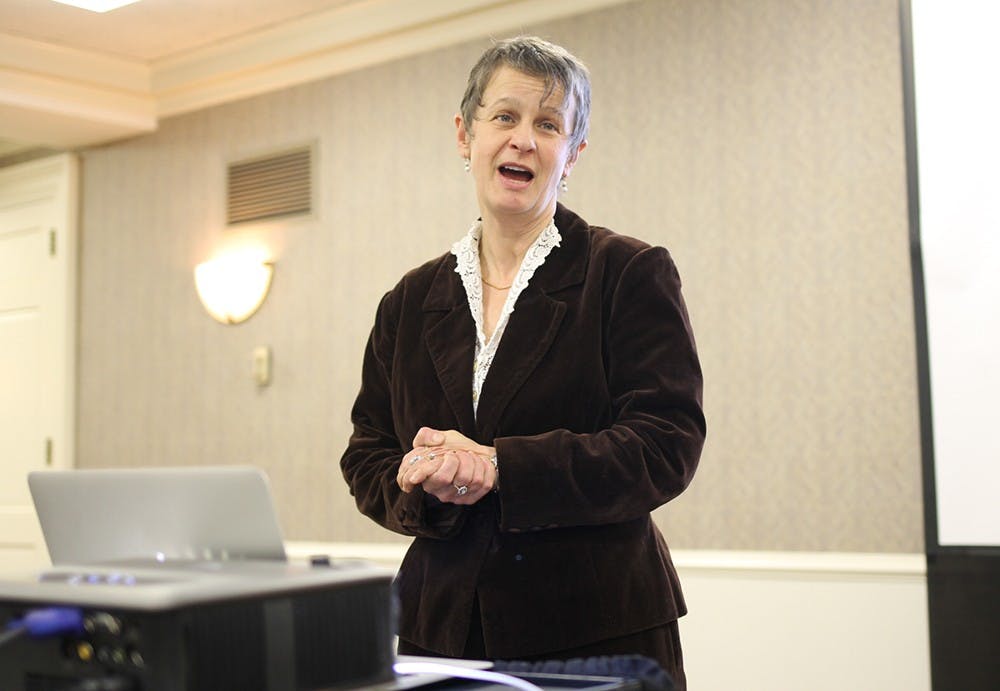Fábián spoke at the Indiana Memorial Union about domestic violence in Hungary and the legislative action — or lack thereof — in the country.
She began her speech by highlighting the way Hungarians used Rosie the Riveter as a symbol in the 2012 Women’s Riot. The riot’s title was borrowed from the well-known Russian band Pussy Riot.
“Except, the Hungarians did not translate the ‘pussy’ part,” Fábián said. She presented the riots as an example of the Hungarian people’s response to a lack of judicial action against domestic ?violence.
Fábián said there are significant “power differentials about who defines domestic violence.” She said the recognition of domestic violence in the families is necessary to the human rights movement.
She said the recognition of human rights between intimate partners, family members and the individuality of women is a question of social norms within Hungary. The lack of action toward domestic violence stems from a lack of training in the Hungarian judicial system as well as a lack of the media coverage, she said.
“Signatures are not ratifiers,” she said. Hungary has been recognized as a signer of laws concerning the protection of victims in acts of domestic violence. Hungary’s culture is questioned in ?these events.
She said citizens recognize the symbolic compliance with the laws on domestic violence, but the conflict presents itself in government regulation and the way in which domestic violence is defined.
Fábián shared a story in which a man burned down his home with his ex-wife and 15-month-old child inside. The man went to prison for burning a house down and did not receive punishment for putting his wife and child in danger.
She said social norms suggest the woman is property of the man, but women are now arguing they are still individuals, even in a marriage. The jurors and media do not know how to present the issues, because “they have not had training in this area,” she said.
There was an example she used from a satirical ?Facebook post.
The image showed a woman with text that Fábián translated to: “‘If you’re tired of your husband, and on his name is both the household, or flat, and the car, what should you do?’
‘Did he catch you with your lover?’
‘Did it turn out to be that the child wasn’t his?’
‘There is a solution ... And that is domestic violence. There is a very well-established Swedish-American method.”
“Most of these laws are on paper,” said Janos B. Kocsis, Gyorgy Ranki Hungarian chair visiting professor. “It’s no wonder these laws are ?ineffective.”
She said her networks are in Hungary, but the human rights movement can be seen all over the post-communist world. While the advocacy of the political rights movement has fallen out with communism, she said Hungary is now pushing human rights emphasizing the issue of ?domestic violence.
Lynn Hooker, associate professor in the Central Eurasian Studies department, studied music in Hungary in 1996. She found a group combating domestic violence during that time.
“As a scholar and a woman, it interested me then and it interests me now,” she said.






